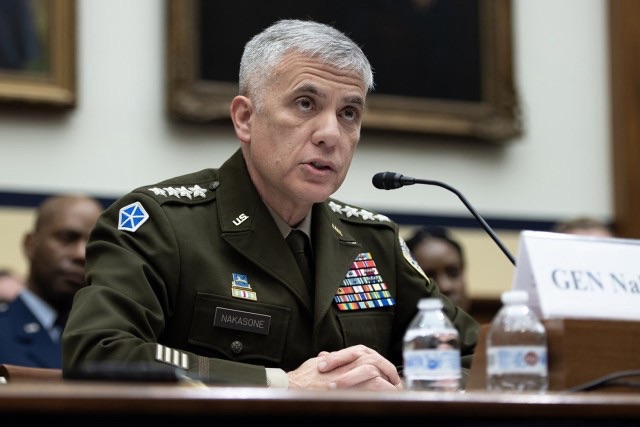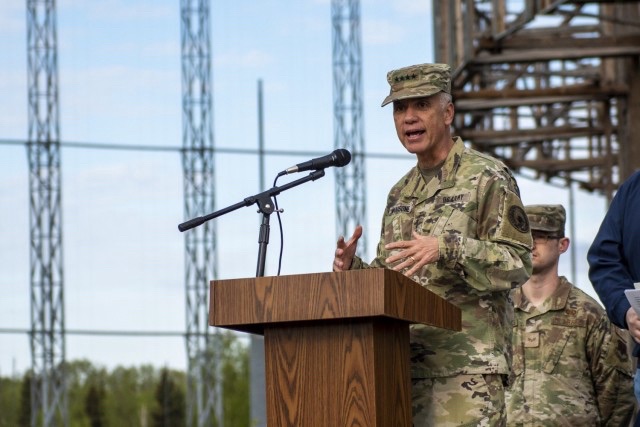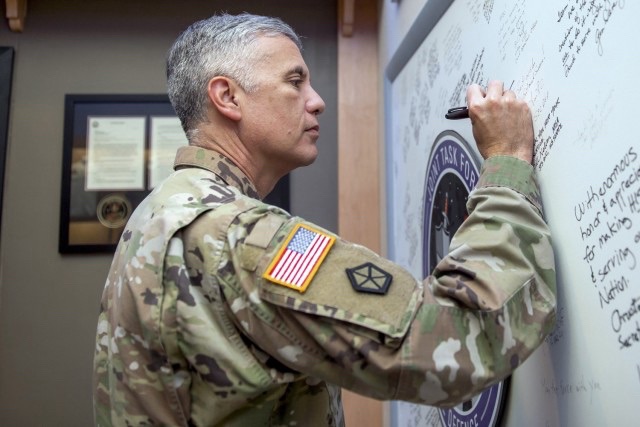WASHINGTON — The National Security Agency’s ability to recruit and retain top talent is key to meeting the demands of the future, agency Director Army Gen. Paul M. Nakasone, said today.

Nakasone said the rapid evolution of technology continues to reshape the national security landscape and how his agency responds to new threats, but people remain central to the NSA’s mission.
“A lot of times we think about the incredible technological capabilities and the high-speed computers that are there, but, at the end of the day, what makes us the agency that we are is our talent,” he said during a discussion in Washington hosted by the Intelligence and National Security Alliance, a trade organization focused on public-private national security partnerships.
Earlier this year, the National Security Agency launched its largest hiring surge in three decades with a goal of hiring more than 3,000 new employees by the end of 2023.
Spotlight: Engineering in the DOD
Nakasone said the NSA is “moving very quickly” to meet that goal, but said numbers are only part of the overall objective.
He said the agency has also focused on improvements to its recruiting and retention practices to ensure it attracts a “future-ready workforce.”
“How do we think about a population that is over 50% today millennials and [Generation Z]?” he said. “Ten years ago, 70% of our workforce was baby boomers. Five years ago, Gen Z and millennials overtook baby boomers. Five years from now, 70% will be Gen Z and millennials.”

“This is the workforce that is coming into our agency, so this is an agency that is looking much differently in how we retain our workforce,” he said.
That approach includes a focus on adapting to work-life balance demands and easing career mobility between the government and private sector.
That workforce will be on the frontlines of significant change as the agency adapts to technologies — such as artificial intelligence and quantum computing — that Nakasone said will have a significant impact on the national security landscape.
Spotlight: Artificial Intelligence
The NSA has been forward-leaning in its approach to game these game changers.
Earlier this year, Nakasone, who also commands U.S. Cyber Command and serves as the chief of the Central Security Service, announced the creation a new entity to oversee the development and integration of artificial intelligence capabilities within U.S. national security systems.
The AI Security Center will become the focal point for developing best practices, evaluation methodology and risk frameworks with the aim of promoting the secure adoption of new AI capabilities across the national security enterprise and the defense industrial base.

The new entity will consolidate the agency’s various artificial intelligence, security-related activities.
Nakasone said on Friday that the AI Security Center has begun bringing together a series of partners to tackle the issues linking AI to national security.
Recently, he said, the group released a report on AI security infrastructure in partnership with the Cybersecurity and Infrastructure Security Agency, the United Kingdom’s Government Communications Headquarters and other organizations.
“Artificial intelligence is probably the most transformative things that we’re going to experience in our lifetime,” he said. “We have to ensure that the information, the infrastructure, [and] the ability for AI to operate within this nation [is] secure.”
“That’s where the National Security Agency comes in,” he said.
By Joseph Clark, DOD News


You know, I really don’t understand all the hoopla surrounding “artificial” intelligence. Such beings have been in positions of power for quite some time now.
Merry Christmas and a Happy New Year to y’all.
This is definitely something AI would say.
Are you taking about all the “artificial intelligence” people in Washington D.C.?
I see the General spent some time in 5th Corps. I served in 5th Corps Artillery in Babenhausen, West Germany 1970-71.